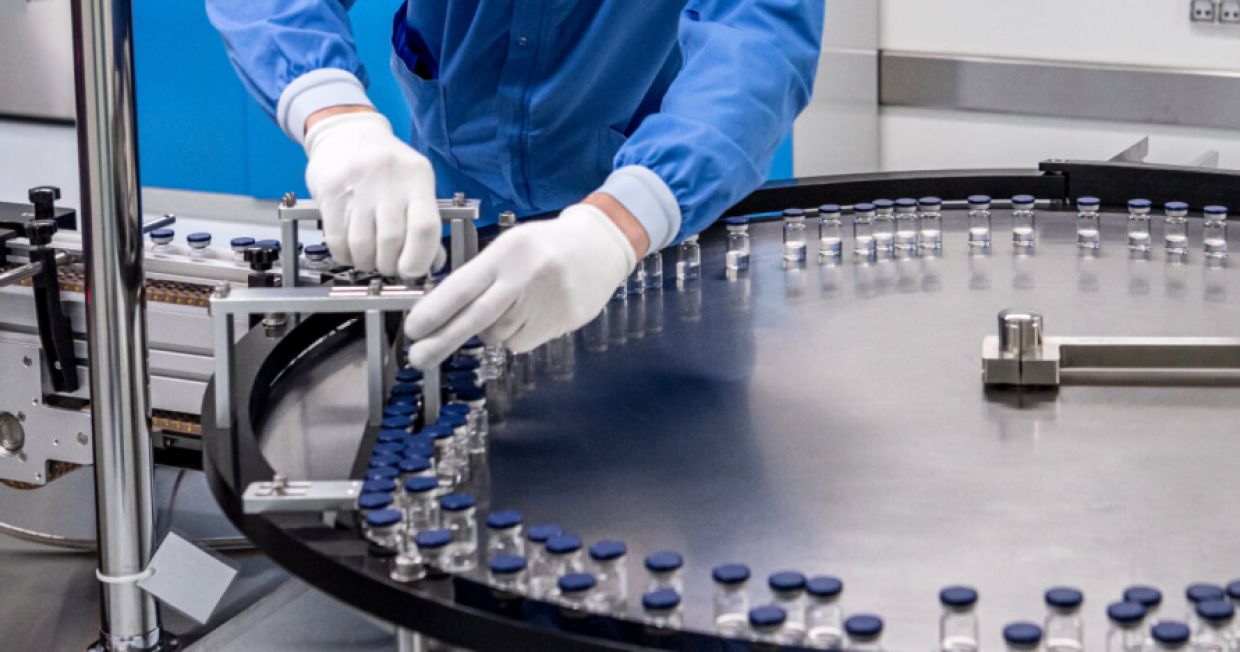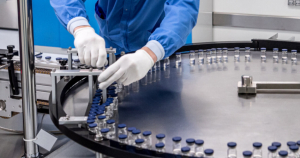
Studies suggest ‘negative efficacy’ for vaccine EpiVacCorona

Sputnik V may be the most famous Russian coronavirus vaccine, but it is not the only one. Back in 2020 the country developed two vaccines: Sputnik V and EpiVacCorona. While the effectiveness of Sputnik V has been proven beyond doubt, it’s still very unclear if EpiVacCorona works at all. Last week saw the publication of two pieces of research highlighting the negative efficacy of EpiVacCorona, which is still being used. These reports will not encourage a still-reluctant Russian public to get vaccinated.
- At the start of the week, the Vedomosti newspaper reported the Ministry of Health had temporarily halted orders and deliveries of EpiVacCorona. One of the newspaper’s sources said “there is reason to consider suspending production.”
- The Health Ministry confirmed it stopped ordering EpiVacCorona at the start of this year. However, it claimed this was down to a surplus and that additional stocks would be purchased if necessary. The developer of EpiVacCorona insists the vaccine is still in production and that a new order from the Health Ministry is expected in February.
- EpiVacCorona was developed by Vector, a state-owned research center. It was approved in Oct. 2020, making it the second Russian coronavirus vaccine after Sputnik V. Despite this, much about the drug is unknown. EpiVacCorona has not been made available for export, and there is no information about how many people in Russia have been injected with it. According to the developer, almost 6.5 million EpiVacCorona doses went into civilian circulation last year.
- The day after it emerged the Health Ministry had stopped ordering EpiVacCorona, two independent studies appeared. Both highlighted the drug’s ineffectiveness. It’s worth noting that these studies took place using different methodologies, at different times and in different cities — but reached similar conclusions.
- The first was published by a group of researchers from the Institute of Interdisciplinary Medical Research at the European University in St. Petersburg. They analyzed data about local residents with Covid-19 symptoms or confirmed cases at the beginning of October, assessing how the vaccination protected against infection and lung damage. According to their figures, Sputnik V’s effectiveness was 58 percent while EpiVacCorona -40 percent. This so-called negative efficacy of EpiVacCorona is alarming.
- Negative efficacy implies that the risk of illness among people vaccinated with EpiVacCorona is actually greater than among the unvaccinated. But researchers said this was likely not the case — instead the results were such because the researchers did not have data about asymptomatic infections among people with vaccines.
- The second study was carried out by journalists from media outlet Meduza (designated as a ‘foreign agent’ by the Russian authorities). They analyzed data about infections among people vaccinated in Moscow that was obtained from a source with access to the capital’s monitoring systems. Based on these numbers, the journalists concluded that EpiVacCorona was ineffective and that “it can be harmful because it leads to a false sense of security and thus stimulates further infections”. Meduza assessed EpiVacCorona’s efficacy at -16 percent.
- EpiVacCorona developer Vector regards these findings as premature, and claims they are based on too small a sample size. Vector has also said that the results could be distorted by the fact that EpiVacCorona is more often used with elderly patients or people with chronic disease, who have a greater risk of Covid-19 complications.
- The recommendation to vaccinate high risk individuals with EpiVacCorona came from the Russian authorities: health watchdog Rospotrebnadzor approved this vaccine for use with the over-60s in March 2021.
- Almost from the start, EpiVacCorona has faced questions. Participants in 2021 clinical trials held independently of Vector reported a lack of any antibodies in any of the people vaccinated. Rospotrebnadzor explained that this was due to EpiVacCorona’s composition (it’s based on peptide antigens) which means that most tests cannot detect the immunity developed after vaccination.
- To cut a long story short, this means that, in Russia, people are still being vaccinated with a drug that may not work. This is despite a sharp rise in Omicron cases (the number of new cases each day has now surpassed 100,000). Although the Health Ministry has halted orders of EpiVacCorona, there are still stocks in the regions and they are still in use. For example, 22,114 people were injected with EpiVacCorona in Saratov Region over the last three months. Moreover, this vaccine is often given to people in high risk groups because it has fewer side effects than Sputnik V.
- EpiVacCorona’s dubious effectiveness means many patients are refusing to get jabbed. In June 2021, newspaper Novaya Gazeta reported that vaccination centers were replacing Sputnik V with EpiVacCorona without warning patients.
Why the world should care: It will be interesting to see how the Russian authorities react. Official recognition of EpiVacCorona’s lack of efficacy would be very painful, not least because it was developed in a state-owned center and its approval was announced by Putin personally. At the time, there was even talk that its effectiveness could be as high as 90 percent.




